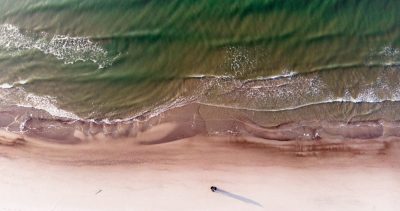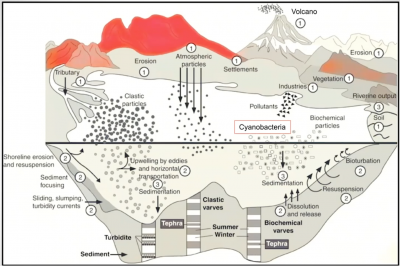Carleton ResearchCarleton University Researcher Awarded Grant to Investigate Munitions Dumping in the Baltic SeaWhat do abandoned old mines in northern Canada and munitions buried deep in the Baltic Sea after World War II have in common… BY SUZANNE BOWNESS | DEC 15 2020 |
|
Department of Earth SciencesProfessor Tim Patterson awarded chemical weapons clean-up fundingThe Department of Earth Sciences Professor Tim Patterson was awarded research funding last week from the Organisation for the Prohibition of Chemical Weapons (OPCW), to investigate the environmental impact of corroding chemical weapons dumped in the years after WWII in the Baltic Sea. NOV 17 2020 |

|
YouTubeA 500-year record of major storms from Harvey Lake, New Brunswick: Implication from cyanobacteria bloom formationPresented by Professor Tim Patterson at the Atlantic Geoscience Society Webinar that took place on May 21st, 2020. |
|
EOSIndigenous Knowledge Puts Industrial Pollution in PerspectiveA 3-year project documents how climate change is affecting the sequestration of decades-old mining by-products in Canadian lakes. BY TY BURKE | OCT 4 2019 |
|
Carleton ResearchEarth Sciences Professor Tim Patterson devoted to safeguarding lakes in Canada’s northTim Patterson has spent many research hours in the past decade helping to boost awareness of the environmental composition of lakes in Canada’s north. BY SUZANNE BOWNESS | SEPT 30, 2019 |
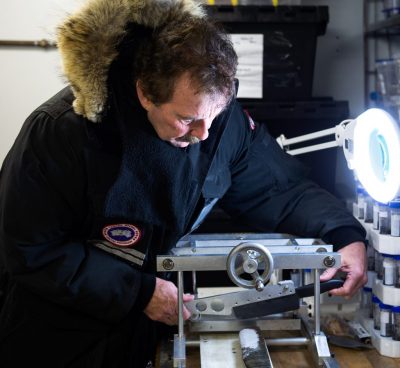 |
ICIndigenous Knowledge Puts Industrial Pollution In PerspectiveA 3-year project documents how climate change is affecting the sequestration of decades-old mining by-products in Canadian lakes. BY TY BURKE | SEPT 27, 2019 |
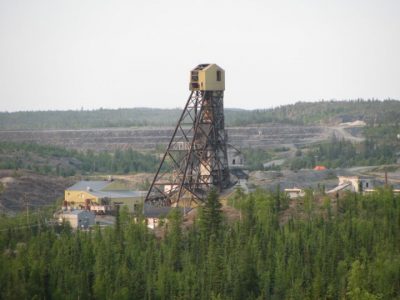 |
Ontario Construction NewsCarleton University gets influx of funding for green technologiesCarleton’s Tim Patterson received funding from the Natural Resources Canada (NRCan) Clean Growth Program.BY CAROLYN GRUSKE | AUG 07, 2019 |
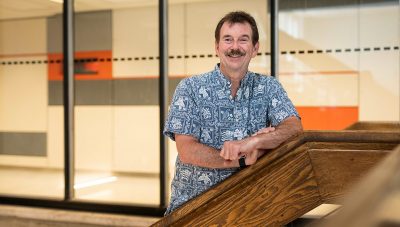 |
CBCHow pulling frozen mud ‘Popsicles’ from N.W.T. lakes can help make mining cleanerNew technology will help Indigenous groups understand more about lakes with year-by-year data. BY PRISCILLA HWANG | AUG 06, 2019 |
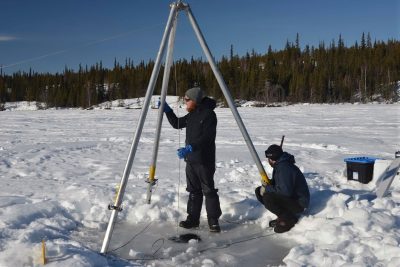 |
Mining MagazineNRCan funds sustainable mining research at CarletonCarleton University’s Tim Patterson has received funding to accelerate the development of technology aimed at making mining more sustainable. AUG 06, 2019 |
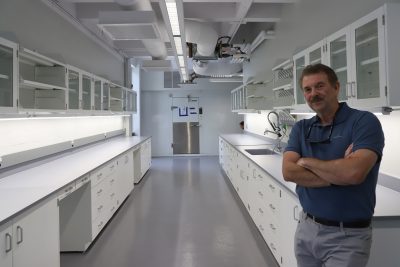 |
NatureHumans versus Earth: the quest to define the AnthropoceneResearchers are hunting for nuclear debris, mercury pollution and other fingerprints of humanity that could designate a new geological epoch. BY MEERA SUBRAMANIAN | AUG 06, 2019 |
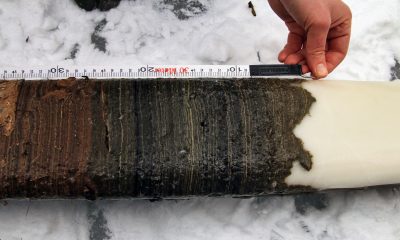 |
NNSL MediaResearchers developing tool to read climate cycles in tricky Northern lake sedimentResearchers from Carleton University are developing innovative technology to create clarity on natural background contaminants, and natural climate cycles, in Northern lake sediment. BY TIM EDWARDS | AUG 03, 2019 |
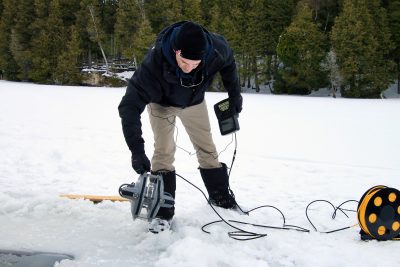 |
Carleton NewsroomCarleton’s Tim Patterson Receives Funding to Accelerate the Development of Technology Aimed at Making Mining More SustainableCarleton University’s Tim Patterson has received funding from the Natural Resources Canada (NRCan) Clean Growth Program BY CHRIS CLINE | JULY 29, 2019 |
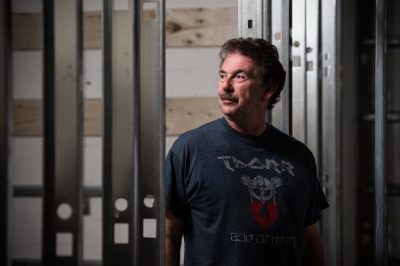 |
Carleton NewsroomThirty years of the webCarleton’s Leading Role BY TYRONE BURKE | JULY 5, 2019 |
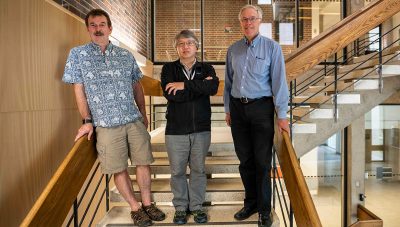 |
The Brock NewsFilm crew joins Crawford Lake research effortsWhen a group of researchers returned to Crawford Lake to continue the search for evidence of a possible new geological era, they came with a film crew to document the occasion. BY DEVON GRIBBLE | MARCH 07, 2019 |
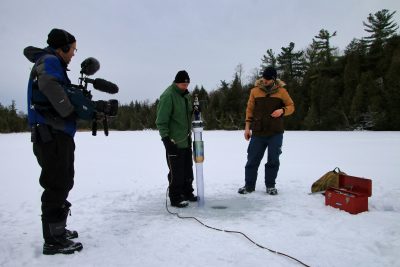 |
Carleton NewsroomPinpointing the Origins of the AnthropoceneHumans have been shaped by our environments, and now, we shape them in return. It’s not just that we intentionally alter landscapes, or that our emissions impact the air. By TY BURKE | OCT 26, 2018 |
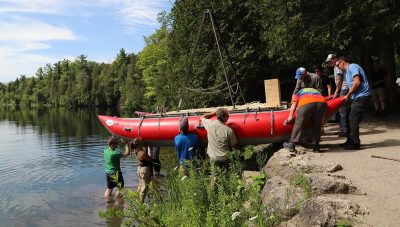 |
YouTubeLake in Canada could mark the beginning of human-influenced age | Al Jazeera EnglishCanada’s Crawford Lake near Toronto may play a crucial part in determining the march of geological time and what might be done about human impact on the planet. BY DANIEL LAK | DEC 03, 2018 |
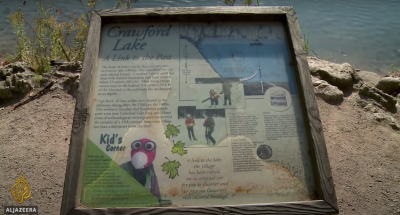 |
CBCWhy scientists suspect proof of a turning point in Earth’s history is sitting in a lake in Milton, Ont.Team from Brock, Carleton and McMaster universities hopes sediment will reveal new geological epoch BY RACHEL LEVY-MCLAUGHLIN | AUG 18, 2018 |
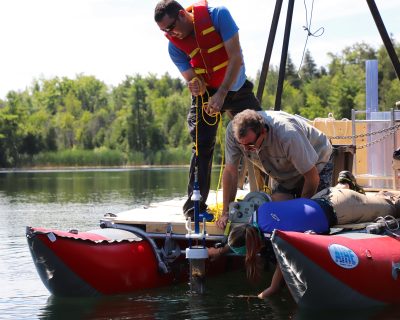 |
CBCAlgae bloom researcher using 1800’s citizen scientist dataTim Patterson is looking for a correlation between early ice departures and algae blooms BY SHANE FOWLER | AUG 04, 2016 |
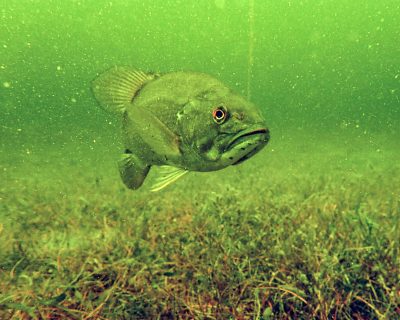 |
The StarCanada seeks traditional aboriginal knowledge on climate changeThe indigenous peoples of northern Canada and other Arctic regions around the world have long argued they are the first to experience and suffer from the effects of global warming. BY JOANNA SMITH | MARCH 12, 2016 |
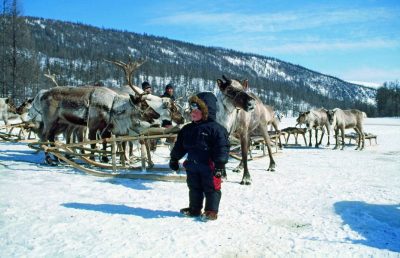 |
University AffairsOut in the fieldFaced with cutbacks and other significant challenges, university field schools are forging ahead by using their difficulties as their strengths. BY TIM JOHNSON | APRIL 10, 2013 |
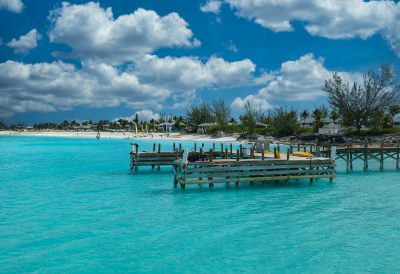 |
The New York TimesLIBRARY/VIRTUAL NATURAL HISTORY MUSEUMS; From Unusual Homework Assignments to a Virtual MuseumThree years ago, Tim Patterson, an associate professor of earth science at Carleton University in Ottawa, started giving his undergraduate students a choice: they could turn in traditional term papers on topics in paleontology, or they could create relevant Web pages. BY BETH SCHACHTER | JAN 14, 1999 |
 |

